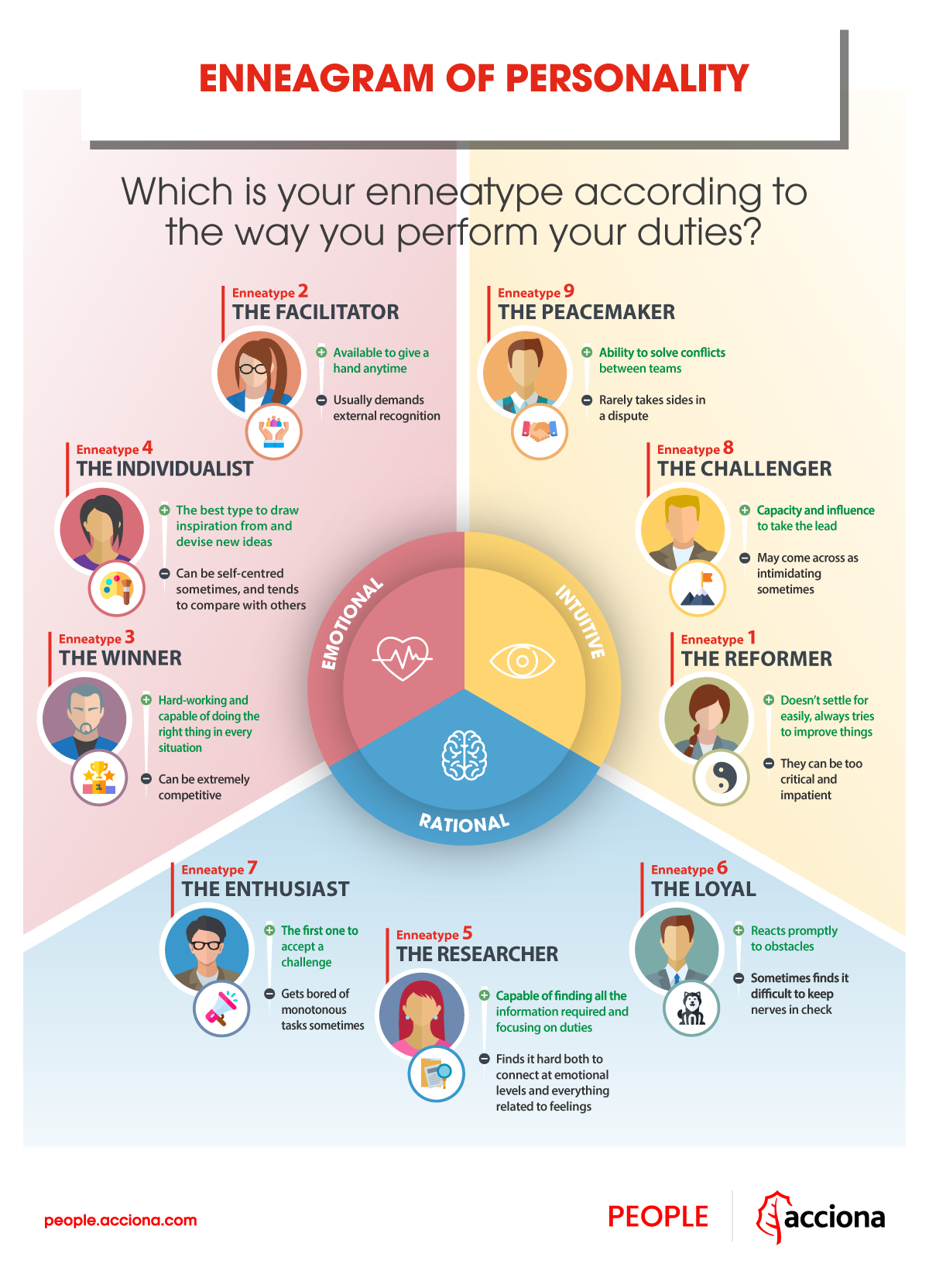What other tools for self-knowledge are there?
There are other tools for self-knowledge that have been helping people in this conscious work of self-understanding for decades.
Myers-Briggs Type Indicator
The Myers-Briggs Type Indicator (MBTI) is one of the most recognised tools in this field. Based on the theories of Carl Jung, the MBTI classifies people into sixteen personality types in order to promote a deeper understanding of individual preferences in work and life.
Jung was a psychiatrist and during his clinical practice he observed that people showed significant differences in the way they used their basic mental functions, that is, in the assimilation and evaluation of information. He saw that these differences in turn led to distinctions in personality qualities and characteristics between people. Jung’s theory of psychological types introduced the words extrovert and introvert into our collective vocabulary.
While some people find the MBTI useful for self-exploration or personal development, it is not widely accepted by the scientific community as a rigorous psychological assessment tool.
CliftonStrengths
Another tool for self-awareness is the CliftonStrengths test (formerly known as StrengthsFinder), developed by Gallup, which focuses on identifying and enhancing an individual’s innate strengths. This approach is aligned with Howard Gardner’s theory of multiple intelligences, which proposes that intelligence is not a single construct, but an amalgam of different abilities.
Gallup has conducted studies to validate the use of the test to improve performance and job satisfaction. However, as with any assessment tool, it’s essential to consider that it’s not foolproof and should be used as part of a broader approach to personal and professional development.
Personal SWOT analysis
Traditionally used in business, SWOT analysis has also been adapted to personal development to encourage individuals to assess their strengths, weaknesses, opportunities and threats in the context of their career path.
This introspective exercise invites critical reflection, fostering a strategic vision on how to navigate challenges and capitalise on opportunities on the career path.
Tools for self-knowledge are one component of an ongoing process of personal and professional development. Ultimately, these theories serve as starting points for a deeper exploration of the self. They promote a culture of reflection and self-discovery that not only enriches the professional journey, but also instils a sense of purpose and direction.

